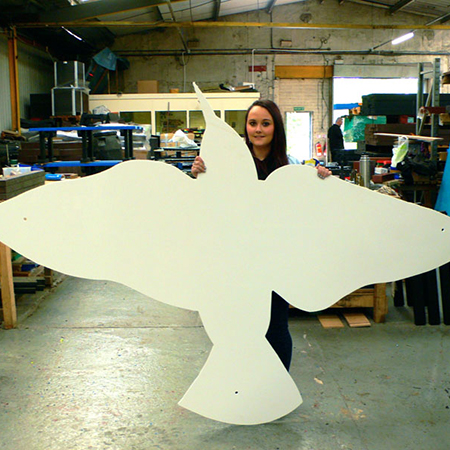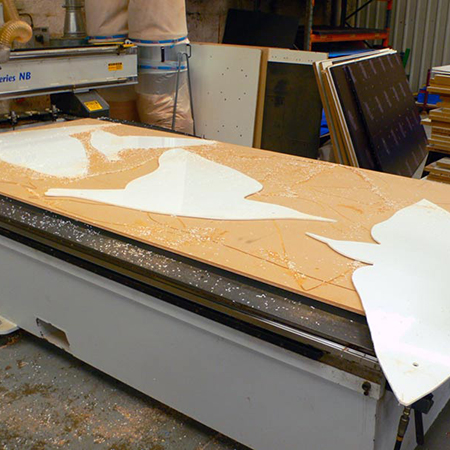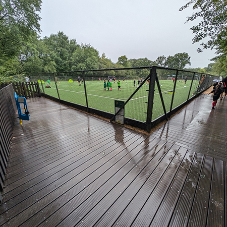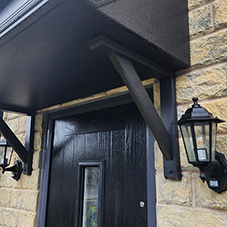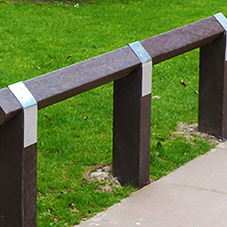Kedel Limited played a vital role in the 50 Fields of Vision project rolled out in Yorkshire in 2014 for the Tour de France.
A dramatic land sculpture, designed by Hebden Bridge based artist, Jane Revitt was installed on a landfill site at Elland near Halifax.
Lancashire based, Kedel Limited produced the bird-like components that made up the ‘Swoop’, which was seen by over 3.5 billion people around the world during the world’s most famous road cycle race.
Product Engineer Laura Young, reproduced the Starlings as CAD drawings, based on Jane Revitt's original sketches, ready for output to a large flatbed CNC, a state of the art cutting and drilling machine.
There were several varieties of different shaped birds in various sizes for different positions in the flock and were all cut from white 6mm PPC sheet (Polypropylene Carbonate) with a high recycled plastic content.
"We were delighted to be involved in this artistic project during the Tour de France," said Managing Director of Kedel, Dermot Walch.
"The lead time for researching the best materials in recycled plastic sheet, and for creating the CAD design and CNC files was shorter than most companies would have liked," he added, "but we have a reputation for meeting difficult challenges and managed to pull it off very successfully."
All the waste left over from cutting out the birds went back to the company for recycling again.
Kedel have an in house design team and large flatbed CNC offering industrial product design and CNC services to businesses all over the UK.
Starlings were chosen for the design theme because they are in decline in the UK, the swooping flocks were once a common sight in the North of England during the migration season.
The dramatic swooping movement of this starling flock - over 500 birds - is intended to reflect the cyclists’ peloton, where riders flock together to save energy, just as migrating birds do.
"Placing this 'Swoop' of various sized starlings in flight on a capped landfill site in Elland seemed very appropriate, and making them from recycled plastic makes the project environmentally symbolic, as well as eco-friendly, says Lewis Walch, Kedel's Technical Director, "This landfill was in use long before recycling came of age, and would have received many tonnes of plastic waste. These recycled plastic Starlings show how times have changed for the better."
Kedel now use the same recycled plastic waste to make a wide range of products, from picnic tables and benches for schools and recreation areas, to fencing, cladding, decking and ground reinforcement grids for construction and refurbishment projects all over the UK.
View Kedel V-Cladding: Recycled Plastic Cladding Product Entry

